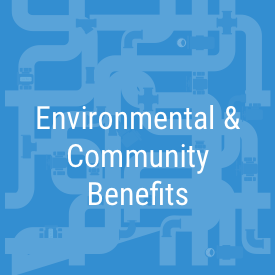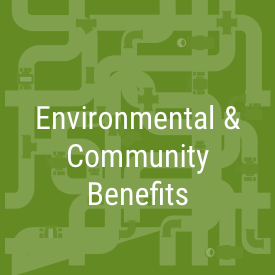A 2012 independent engineering study identified Calero Dam as a seismic risk due to the presence of alluvium – gravel and sand from the underlying creek bed – under the downstream dam embankment. That material could liquefy during a major earthquake on a nearby fault and cause the dam to deform significantly, risking an uncontrolled release of reservoir water. In response, the state Division of Safety and Dams (DSOD) imposed storage restrictions for the reservoir of 19-feet below the spillway crest, keeping water levels lower than normal to prevent topping in the event of a major earthquake until the water district assesses and conducts corrective action to restore the dam’s full integrity.








Soil sampling underway
On Sept. 3, 2024, Valley Water began to conduct soil sampling along the Calero Reservoir as part of the Calero Dam Seismic Retrofit Project.
As work continues, we will expand drilling to the Cottle Trail in early October 2024. The trail will remain open but please use caution in the area and watch for construction crews and equipment.
The sampling, which is part of a seismic repair project at the Calero Dam, is anticipated to be completed by mid-November 2024. Crews will be on site from 7 a.m. to 5 p.m. Boating activities will not be impacted.
The aerial image below highlights the soil drilling locations on the trail that runs along the reservoir.
Project update
Following a pause due to scheduling adjustments on the Anderson Dam Seismic Retrofit Project, the design and environmental documentation for the Calero Dam Seismic Retrofit Project has resumed. Initially, Calero Dam repairs would have required fully draining the reservoir, but to maintain water supply reliability, Valley Water is now developing a strategy to perform significant portions of the retrofit without reservoir drawdown, allowing for faster project completion. A new design consultant, recently approved by the Valley Water Board, is currently evaluating construction phasing, prioritizing embankment and spillway upgrades before outlet work improvements, with 50% design for the first phase anticipated by summer 2025. Alongside this, environmental assessment is being reactivated, with a Draft EIR expected for public review in late 2025.
The Calero Dam Seismic Retrofit Project will:
- Stabilize dam embankments
- Replace and modernize the outlet works
- Replace and modernize the spillway to increase freeboard
- Breach Fellow’s Dike, an older and smaller dam located on the southern-most section of the reservoir that is severely deteriorated.
The Santa Clara Valley Water District built the Calero Dam during the Great Depression, completing it in 1935 after acquiring land as the Santa Clara Valley Water Conservation District. The dam and reservoir is one of the six original reservoirs approved for construction by voters in May 1934.
The reservoir has a surface area of 349 acres and is a popular venue for boating, water skiing and jet skiing. The dam is critical to the district's water storage and management, capturing runoff from the nearby foothills and transfers Almaden Reservoir.



